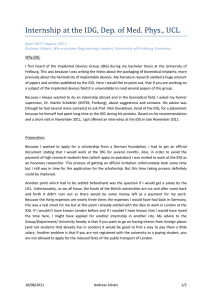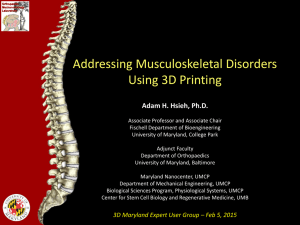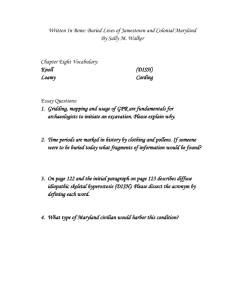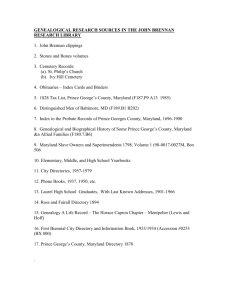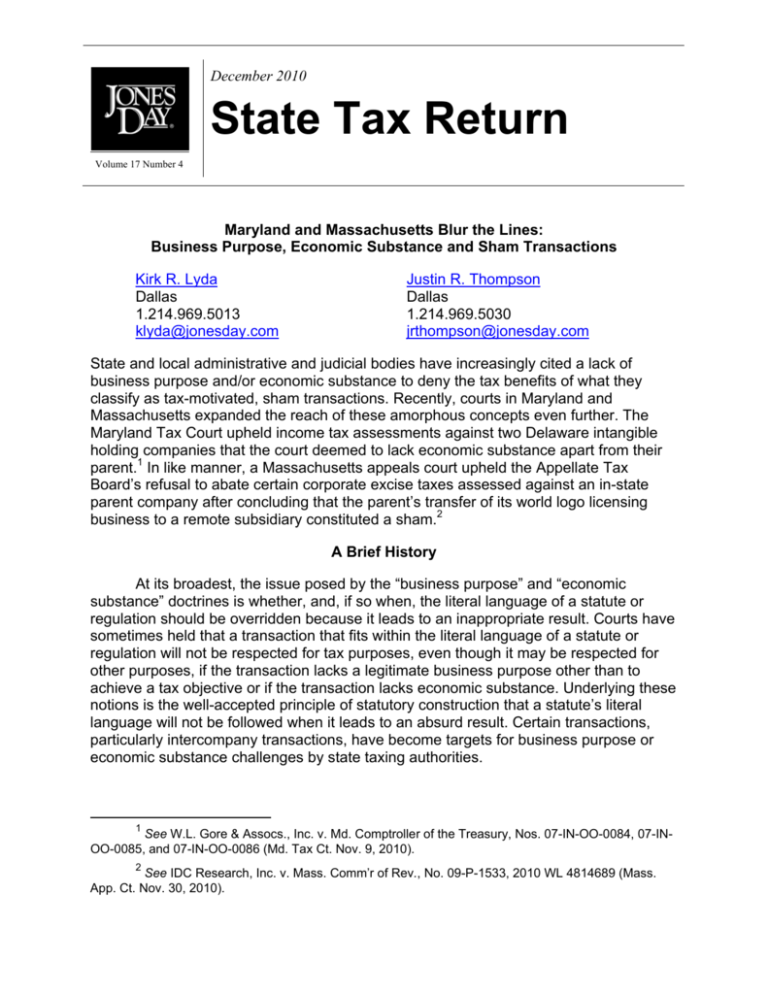
December 2010
State Tax Return
Volume 17 Number 4
Maryland and Massachusetts Blur the Lines:
Business Purpose, Economic Substance and Sham Transactions
Kirk R. Lyda
Dallas
1.214.969.5013
klyda@jonesday.com
Justin R. Thompson
Dallas
1.214.969.5030
jrthompson@jonesday.com
State and local administrative and judicial bodies have increasingly cited a lack of
business purpose and/or economic substance to deny the tax benefits of what they
classify as tax-motivated, sham transactions. Recently, courts in Maryland and
Massachusetts expanded the reach of these amorphous concepts even further. The
Maryland Tax Court upheld income tax assessments against two Delaware intangible
holding companies that the court deemed to lack economic substance apart from their
parent.1 In like manner, a Massachusetts appeals court upheld the Appellate Tax
Board’s refusal to abate certain corporate excise taxes assessed against an in-state
parent company after concluding that the parent’s transfer of its world logo licensing
business to a remote subsidiary constituted a sham.2
A Brief History
At its broadest, the issue posed by the “business purpose” and “economic
substance” doctrines is whether, and, if so when, the literal language of a statute or
regulation should be overridden because it leads to an inappropriate result. Courts have
sometimes held that a transaction that fits within the literal language of a statute or
regulation will not be respected for tax purposes, even though it may be respected for
other purposes, if the transaction lacks a legitimate business purpose other than to
achieve a tax objective or if the transaction lacks economic substance. Underlying these
notions is the well-accepted principle of statutory construction that a statute’s literal
language will not be followed when it leads to an absurd result. Certain transactions,
particularly intercompany transactions, have become targets for business purpose or
economic substance challenges by state taxing authorities.
1
See W.L. Gore & Assocs., Inc. v. Md. Comptroller of the Treasury, Nos. 07-IN-OO-0084, 07-INOO-0085, and 07-IN-OO-0086 (Md. Tax Ct. Nov. 9, 2010).
2
See IDC Research, Inc. v. Mass. Comm’r of Rev., No. 09-P-1533, 2010 WL 4814689 (Mass.
App. Ct. Nov. 30, 2010).
©Jones Day
During the 1980s and 1990s, many corporate taxpayers took steps to manage
their intellectual properties more effectively by transferring them to a so-called
“intangible holding company” or “IHC.” IHCs typically licensed the intellectual properties
back to related companies for use in their business in exchange for royalties. Some
IHCs loaned the royalty proceeds to the related companies for use in their business,
generating interest expense at the related operating company level. In addition to a
number of potential non-tax business purposes, the placement of intellectual properties
in an IHC generally resulted in state tax savings since the related operating companies
deducted the royalties and interest they incurred from their income in the states in which
they did business. The IHCs, which typically limited their activities to Delaware,
generally qualified for an exemption from the Delaware income tax and were commonly
regarded as not being subject to taxation in any other state. States in which the related
companies were doing business began challenging the use of IHCs based on a number
of theories in the mid to late 1980s.
The South Carolina Supreme Court’s decision in Geoffrey, Inc. v. South Carolina
Tax Commission3 was one of the first reported decisions involving an IHC. In Geoffrey,
the court upheld the assessment of South Carolina income taxes against the foreign
IHC.4 Although the business purpose doctrine was not an issue in Geoffrey, the
decision paved the way for other states to go after IHCs based on lack of business
purpose and other legal theories.
Maryland—Murky Waters
Maryland courts have gradually tangled the business purpose and economic
substance doctrines with unitary business and nexus principles to renounce the use of
remote IHCs over the last ten years. Specifically, if a remote IHC receiving royalty
income from a Maryland affiliate lacks genuine economic substance, Maryland courts
have held that the Comptroller may attribute to the IHC the nexus, and where
appropriate the apportionment factors, of the Maryland affiliate upon which the IHC
supposedly relies for its separate existence.5 In SYL and Crown Cork & Seal, the
Maryland Court of Appeals characterized the IHCs as resembling phantom corporations
with “a touch of ‘window dressing’ designed to create an illusion of substance.”6 The
Court of Appeals concluded “[a]lthough officers of the parent corporations may have
stated that tax avoidance was not the sole reason for the creation of the subsidiaries,
the record demonstrates that sheltering income from state taxation was the predominant
reason for the creation of SYL and Crown Delaware.”7
3
4
437 S.E.2d 13 (S.C. 1993), cert. denied, 510 U.S. 992 (1993).
Id. at 19.
5
See Md. Comptroller of the Treasury v. SYL, Inc. and Crown Cork & Seal Co., 825 A.2d 399
(Md. 2003); The Classics Chicago, Inc. v. Md. Comptroller of the Treasury, 985 A.2d 593 (Md. Ct. Spec.
App. 2010).
6
7
SYL and Crown Cork & Seal, 825 A.2d at 415.
Id.
-2-
©Jones Day
Recently, the Maryland Tax Court reached a similar result as the Court of
Appeals in SYL and Crown Cork & Seal, by employing a slightly different and more
troubling analysis.8 Petitioners in the matter were two Delaware IHCs wholly-owned by
W.L. Gore & Associates (“WL Gore”), a manufacturer with a physical presence in
Maryland. WL Gore created the two IHCs to hold and license certain patents and to
invest and manage excess funds, respectively. The Maryland comptroller assessed
taxes against the IHCs on the basis that neither “has an identity as a separate business
entity and that the intangible income [each] receives is directly connected to Maryland
activity through the unitary business conducted in Maryland” by WL Gore.9
The Tax court stated that “Maryland courts have consistently concluded that the
basis of a nexus sufficient to justify taxation is the economic reality of the fact that the
parent’s business in Maryland was what produced the income of the subsidiary.”10
Combining this so-called standard with unitary business principles, the court held that
the IHCs “were passive, non-operational entities and did not have a business existence
separate and apart from their parent company.”11
In the court’s eye, the facts reflected functional integration, control through stock
ownership and common employees, and a reliance by the IHCs on WL Gore’s
personnel, office space, and corporate services.12 The court viewed the evidence as
such that substantial nexus existed between the IHCs and Maryland and upheld the
assessments against the IHCs.13 This case grants the Comptroller alarming authority to
apportion a remote entity’s income based upon the apportionment factors of an in-state
affiliate and leaves taxpayers guessing as to what exactly constitutes economic
substance.
Massachusetts—Clarity Through Codification?
The Massachusetts legislature has codified the “sham transaction doctrine.” The
relevant statute provides, “[T]he commissioner may, in his discretion, disallow the
asserted tax consequences of a transaction by asserting the application of the sham
transaction doctrine or any other related tax doctrine, in which case the taxpayer shall
have the burden of demonstrating by clear and convincing evidence as determined by
the commissioner that the transaction possessed both: (i) a valid, good-faith business
purpose other than tax avoidance; and (ii) economic substance apart from the asserted
8
See W.L. Gore & Assocs., Inc. v. Md. Comptroller of the Treasury, Nos. 07-IN-OO-0084, 07-INOO-0085, and 07-IN-OO-0086 (Md. Tax Ct. Nov. 9, 2010).
9
Id.
10
11
12
13
Id. (citing SYL and Classics Chicago).
Id.
Id.
Id.
-3-
©Jones Day
tax benefit.”14 Thus, Massachusetts law requires both a non-tax business purpose and
economic substance to pass muster under a sham analysis.
These now statutorily-imposed concepts were previously developed in a series of
cases in Massachusetts beginning in 2000.15 The decisions in Syms, Sherwin-Williams,
and Cambridge Brands made clear that the inquiry of whether or not a transaction is a
sham “is, of necessity, primarily a factual one, on which the taxpayer bears the burden
of proof.”16 Furthermore, in dealing with situations where remote IHCs are found to lack
economic substance, Massachusetts courts have opted to deny the royalty and interest
expense deductions taken by the in-state affiliates of such IHCs or to reallocate a
portion of the IHCs’ income to their in-state affiliates rather than taxing the remote IHCs
directly through puzzling conceptions of nexus like their counterparts in Maryland.17
On November 30, 2010, a Massachusetts appeals court did just that in upholding
the Appellate Tax Board’s finding that a parent company’s transfer of its world logo
licensing business to a remote subsidiary “had no economic substance or business
purpose other than tax avoidance, and therefore constituted a sham transaction.”18
International Data Group (“IDG”) is a technology media company based in
Massachusetts. IDG Holdings, Inc. (“IDG Holdings), a subsidiary of IDG, is an IHC
based in Delaware. IDG transferred its world logo licensing business to IDG Holdings. In
turn, IDG Holdings received royalty income from certain foreign affiliates in exchange for
their use of the world log and loaned a portion of this income to IDG periodically. The
Appellate Tax Board “concluded that the commissioner properly reallocated royalty
income from IDG Holdings to IDG, based on the sham transaction and assignment of
income doctrines.”19
14
Mass. Gen. Laws ch. 62C, § 3A.
15
See Syms Corp. v. Mass. Comm’r of Rev., 765 N.E.2d 758 (2002) (disallowing royalty and
interest expense deductions based upon the sham transaction doctrine); The Sherwin-Williams Co. v.
Mass. Comm’r of Rev., 778 N.E.2d 504 (2002) (concluding that “[b]ecause the record in this case
establishes that the reorganization and subsequent transfer and licensing transactions were genuine,
creating viable businesses engaged in substantive economic activities apart from the creation of tax
benefits for Sherwin-Williams, they cannot be disregarded by the commissioner as a sham regardless of
their tax-motivated purpose.”); Cambridge Brands, Inc. v. Mass. Comm’r of Rev., No. C259013 (Mass.
App. Tax Bd. July 16, 2003), aff'd, 820 N.E.2d 837 (Mass. App. Ct. 2005) (unpublished) (finding that
substantial evidence existed to conclude that the arrangement between the various affiliates had a
business purpose).
16
Syms, 765 N.E.2d at 764.
17
See, e.g., The Talbots, Inc. v. Mass. Comm’r of Rev., Nos. C266698, C271840, and C276882,
2009 WL 3162121 (Mass. App. Tax Bd. Sept. 29, 2009) (holding that the Commissioner properly
reattributed to Talbots all of the royalty income and interest income earned by investment of the Talbots
Marks.)
18
IDC Research, Inc. v. Mass. Comm’r of Rev., No. 09-P-1533, 2010 WL 4814689, at *1 (Mass.
App. Ct. Nov. 30, 2010).
19
Id.
-4-
©Jones Day
The appeals court agreed, finding “that IDG did not sustain its burden of proving
that it was entitled to an abatement of corporate excise taxes on amounts it claimed
were earned by IDG Holdings.”20 The court questioned IDG Holdings’ standing as a
viable entity for tax purposes, pointing out that its only activities consisted of receiving
royalties, automatically investing these amounts when its account reached a certain
level, and briefly leasing an office suite at its bank.21 Moreover, though the court
believed that IDG may not have transferred ownership of the world logo at all, it stated
that even if the logo had been transferred, “the transactions still lacked economic
substance or effect because IDG retained full use and control of the world logo and the
benefits and burdens of its ownership.”22
The Massachusetts appeals court also accepted the board’s finding that there
was no substantive business purpose to transfer the world logo licensing business to
IDG Holdings.23 Even with little or no direct evidence that the transaction was
undertaken solely for tax avoidance, the court pointed out that the burden was on IDG
to prove a non-tax motive.24 The court concluded that “the control IDG maintained over
IDG Holdings bore none of the hands-off features that typified its relationships with its
other subsidiaries” and the transfer of the world logo licensing business was not
consistent with the company’s claimed goal of decentralization.25
Finally, the Massachusetts court refused to accept IDG’s argument that the sham
transaction doctrine did not apply because the licensing of the world logo constituted a
new business instead of a reorganization. IDG developed and previously used the world
logo and, according to the court, tax “avoidance was amply demonstrated in the
record.”26
Conclusion
While it is easy to detect a trend of state tax agencies invoking the business
purpose and other doctrines in order to combat perceived state tax planning, identifying
trends in how state courts react to such allegations is more difficult. Some state courts
have refused to apply the business purpose and related doctrines even when faced with
clear evidence of tax motive, leaving it up to the legislature to fix any perceived abuse of
the system. Some state courts have searched diligently for the confines of the business
purpose doctrine and applied the doctrine against the taxpayer only when compelled by
clear evidence. Other state courts, including those in Maryland and Massachusetts,
20
21
22
23
24
25
26
Id.
Id. at *1-2.
Id. at *2.
Id. at *4.
Id.
Id.
Id. at *5.
-5-
©Jones Day
have arguably paid lip service to the legitimate business purpose doctrine as a basis for
ruling against the taxpayer when the court felt the taxpayer was engaged in some form
of tax planning.
One clear trend is that legislatures are taking a more active role in combating
perceived abuse of tax systems. The U.S. Congress recently enacted a federal
definition of the “economic substance doctrine.” The Health Care and Education
Reconciliation Act was signed into law on March, 30, 2010, and added new code
section 7701(o), which states, “In the case of any transaction to which the economic
substance doctrine is relevant, such transaction shall be treated as having economic
substance only if (a) the transaction changes in a meaningful way (apart from Federal
income tax effects) the taxpayer’s economic position; and (b) the taxpayer has a
substantial purpose (apart from Federal income tax effects) for entering into such
transaction.”27
It remains to be seen whether similar state legislative attempts to codify common
law doctrines such as the business purpose doctrine or attempts to disallow deductions
for intercorporate payments will lead to more or less litigation. Given the current
economic landscape, it seems unlikely such attempts will thwart the efforts of taxpayers
to find even more creative ways of reducing state taxes. Taxpayers should take care to
structure transactions that have economic substance and are at least partially motivated
by a viable non-tax purpose.
This article is reprinted from the State Tax Return, a Jones Day monthly newsletter reporting on recent
developments in state and local tax. Requests for a subscription to the State Tax Return or permission to
reproduce this publication, in whole or in part, or comments and suggestions should be sent to Christa Smith
(214.969.5165) in Jones Day’s Dallas Office, 2727 N. Harwood, Dallas, Texas 75201 or
StateTaxReturn@jonesday.com.
©Jones Day 2010. All Rights Reserved. No portion of the article may be reproduced or used without express permission. Because of
its generality, the information contained herein should not be construed as legal advice on any specific facts and circumstances. The
contents are intended for general information purposes only.
27
I.R.C. § 7701(o) (emphasis added).
-6-


